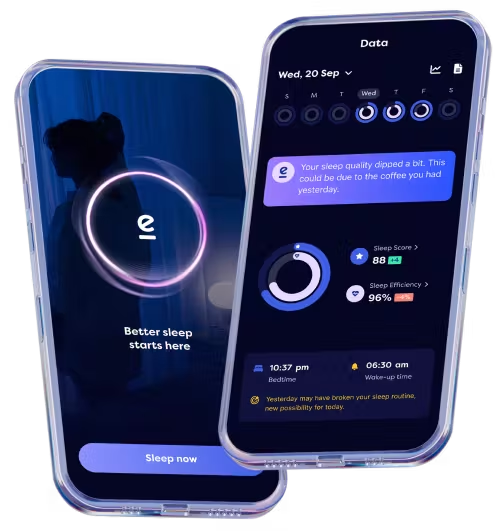
Sleep Calculator
Find out what time you should sleep or wake up to get that good night’s sleep!
How are the time slots above determined?
The time slots are determined by calculating the recommended number of sleep cycles you must go through from the bedtime you provided. One sleep cycle moves through 4 stages - three in Non-Rapid Eye Movement Sleep (Non-REM) and one in Rapid Eye Movement Sleep (REM).
Each sleep cycle is equivalent to ~90 minutes. The intervals are set so that you go through at least 4-6 sleep cycles per night - or the equivalent of 6-9 hours of sleep. The first time slot that appears recommends the best possible bedtime for you to get at least 9 hours of snooze time.
The idea here is to wake up in between each cycle (after the REM stage) to avoid disrupting any of the sleep stages. You’ll find yourself waking up more refreshed and less groggy than if you had woken up in the midst of the stages.
The Non-REM Stages
The 1st stage:
Your body is getting ready to enter the sleep zone. Within 5-10 minutes of shutting your eyes, muscle and brain activity start to slow down. Be careful not to disrupt your starting point - you are still easily woken up at this stage!
The 2nd stage:
This is the light sleep stage. Your eyes will cease to move, body temperature will drop, and heart rate will slow down. We spend most of our sleeping time at this stage - just before we enter deep sleep.
The 3rd stage:
This is the deep sleep stage. All eye movement and muscle activity halt and it will be difficult to wake up. This stage is the most restorative of all - allowing for muscle and tissue repair to build up your energy levels for the next day.
The REM Stage
The REM Stage is the final stage in every cycle. It happens 70-90 minutes after falling asleep – composed of active brain activity, and you start to dream. This is why, as the name suggests, your eyes will be moving in a rapid motion. This stage is especially important to one’s memory functions as it improves overall information processing for the next day.
*The stages do not occur in a linear process. Oftentimes it will go back to stage 2 and 3 before going into REM Sleep.
Do I really need to sleep through 4-6 cycles?
4 to 6 sleep cycles is equivalent to 6 to 9 hours of sleep. This follows the 7-9 hours recommended sleep duration for adults. It’s advised to fulfill this sleep duration because it helps with muscle and tissue repair, learning, memory, and overall restoration of the body processes.
Having insufficient sleep may impair the immune system and render you more susceptible to diseases. This also slows down response time– making an everyday task such as driving a potentially dangerous one.
To live up to your maximum performance and carry on with your daily tasks, make sure you get that good night's sleep!





























